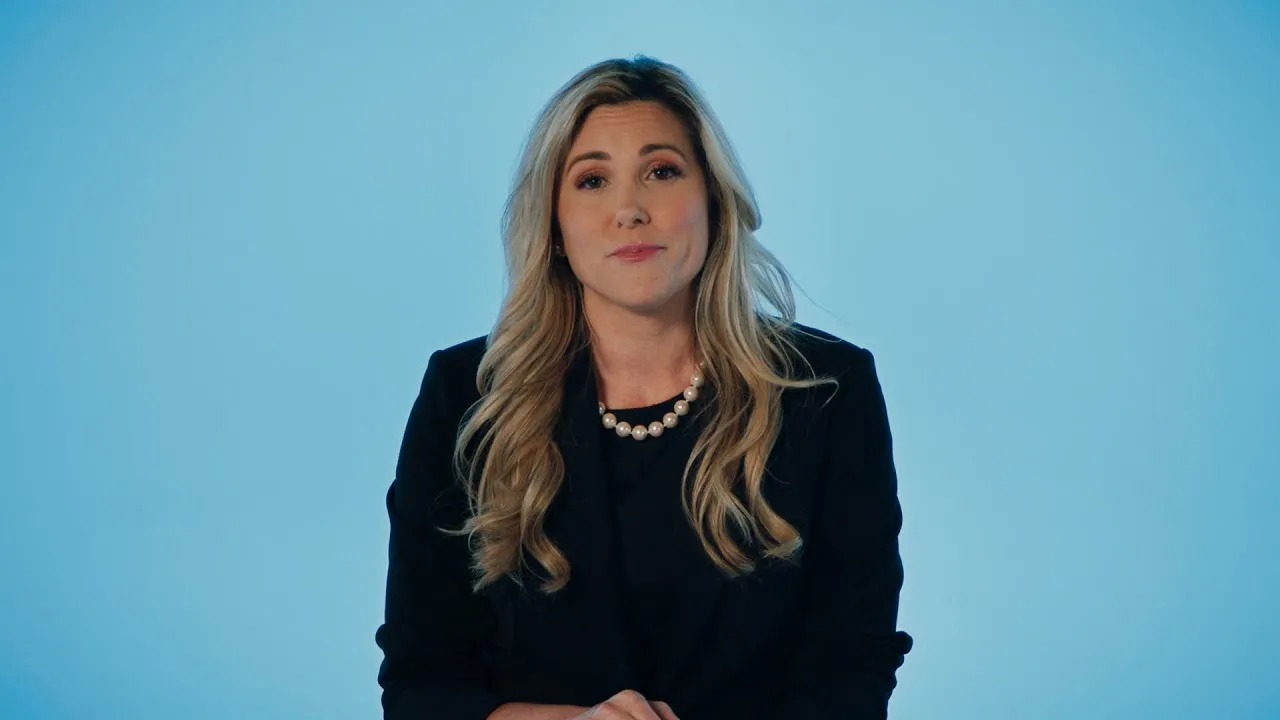
We know motorcycle accidents.
Experienced motorcycle accident lawyers with a proven track record - ready to fight for you.
Start Your ClaimThe attorney shown above may not be licensed in your state. To find an attorney licensed in your area, please visit our attorney page.

The attorney shown above may not be licensed in your state. To find an attorney licensed in your area, please visit our attorney page.
Meet Our Motorcycle Accident Lawyers
When reckless drivers cause you harm, our experienced motorcycle accident lawyers fight for your rights and work tirelessly to secure the compensation you deserve.
The attorneys shown in these photos may not be licensed in your state. To find an attorney licensed in your area, please visit our attorney page.
Our Results
Results may vary depending on your particular facts and legal circumstances.
Ways We Can Help
Turning Collisions
Road Hazard Accidents
Drunk Driving Accidents
Rear-End/Head-On Collisions
High-Speed Crashes
Single Vehicle Accidents
In Their Words
Based on select nationwide reviews.
Motorcycle accident lawsuits need three things.
Injury or damages
Someone else is partially or entirely at fault
Enough insurance coverage
What's a motorcycle accident case worth?
Watch Morgan & Morgan attorneys explain how case value is calculated.

The attorneys shown in this video may not be licensed in your state. To find an attorney licensed in your area, please visit our attorney page.
8 Steps to Take After a Motorcycle Accident
From prioritizing your health at the scene of the accident to securing the compensation you deserve, discover the essential steps every motorcyclist should follow after an accident.
Fighting For the People
Backed by America’s Largest Injury Law Firm.
$25 Billion
Recovered for clients
nationwide700,000+
Clients and families
served1,000+
Attorneys across
the country1
Click may change your life

The attorney featured above is licensed in Florida. For a full list of attorneys in your state please visit our attorney page.
Results may vary depending on your particular facts and legal circumstances.
Motorcycle Accident Injury Types
Road Rash
Fractures and Broken Bones
Traumatic Brain Injuries (TBI)
Spinal Cord Injuries
Internal Injuries
Lower Extremity Injuries
Learn More
Injured and not sure what to do next?
We'll guide you through everything you need to know.
Get answers to commonly asked questions about our legal services and learn how we may assist you with your case.
How do I know if I have a motorcycle accident claim?
Motorcycle accidents can result in severe injuries and financial burdens, making it essential to understand your rights when pursuing a claim. To successfully recover compensation, you must establish specific legal elements that prove negligence. Here’s what you need to demonstrate:
1. Duty of Care
All motorists, including drivers and motorcyclists, have a duty to operate their vehicles safely and follow traffic laws. This duty of care ensures that everyone on the road exercises reasonable caution to prevent accidents.
2. Breach of Duty
To have a valid claim, you must show that the at-fault party breached their duty of care. Examples of this include:
- Speeding or reckless driving
- Distracted driving (e.g., texting while driving)
- Driving under the influence
- Failing to yield or obey traffic signals
- Unsafe lane changes
3. Causation
It is not enough to show that a driver was negligent—you must also prove that their negligence directly caused your accident and resulting injuries. Evidence such as accident reports, witness statements, and expert testimony can help establish this link.
4. Damages
Lastly, you must demonstrate that you suffered actual harm as a result of the accident. This can include:
- Medical expenses (hospital bills, rehabilitation costs, medication, etc.)
- Lost wages and diminished earning capacity
- Pain and suffering
- Property damage (repairs or replacement of your motorcycle)
Consulting with a motorcycle accident attorney is the best way to determine if your case meets these criteria.
What should I do after a motorcycle accident?
If you’ve been involved in a motorcycle accident, it’s crucial to act quickly to protect your health and your legal rights. Here’s a step-by-step guide on what to do:
- Seek Medical Attention: Even if you don’t feel injured immediately, get checked by a medical professional. Some injuries, such as internal bleeding or concussions, may not show symptoms right away.
- Call the Police: Reporting the accident ensures that an official record is made. The police report can be vital in any future legal claims or insurance disputes.
- Collect Evidence: Take photographs of the scene, your injuries, and any damage to your motorcycle. If there are witnesses, get their contact information. This evidence can support your case later.
- Contact Morgan & Morgan: Motorcycle accident cases can be complex, especially if liability is disputed. A skilled attorney can guide you through the process, ensure your rights are protected, and help you secure the compensation you deserve.
- Notify Your Insurance Company: Inform your insurance company about the accident, but avoid giving detailed statements without consulting an attorney first. Insurance companies often attempt to minimize payouts, so having legal representation can ensure you’re treated fairly.
How long after a motorcycle accident can I file a claim?
The time frame within which you must file a motorcycle accident injury claim is dictated by the statute of limitations, which varies by state. Generally, the statute of limitations ranges from one to four years from the date of the accident. This means you have that amount of time from the date of the accident to file a lawsuit. If you miss this deadline, you may lose your right to seek compensation.
In some cases, injuries or damages may not be immediately apparent. The discovery rule allows the statute of limitations to begin when the injury is discovered or reasonably should have been discovered. This is particularly relevant in cases where internal injuries or long-term health issues arise after the accident.
It's especially important to visit a medical professional as soon as possible after the accident. Even if you don't feel hurt, a complete workup will document the state of your health and potentially discover injuries you may not feel yet. In some states, medical paperwork filed shortly after the incident is a requirement for obtaining certain benefits.
Filing a claim sooner rather than later is key to building a strong case. Evidence can deteriorate, memories can fade, and witnesses may become harder to locate over time. By acting promptly, you improve your chances of securing vital evidence.
Given the complexities of statutes of limitations and the potential for exceptions, it’s wise to consult a motorcycle accident lawyer as soon as possible after your accident. A lawyer can help ensure that your claim is filed within the appropriate time frame and advise you on the best course of action.
How long does it typically take to settle a motorcycle accident case?
The time it takes to settle a motorcycle accident case can vary widely depending on several factors, including the severity of your injuries, liability disputes, how cooperative the insurance company is, and state-specific laws. On average, it can take anywhere from a few months to a few years to reach a settlement, but many cases fall somewhere in between.
With a free case evaluation, Morgan & Morgan’s team can help give you an idea of an estimated timeline for your unique case.
Why should I hire Morgan & Morgan?
At Morgan & Morgan, our team of experienced motorcycle accident attorneys has successfully represented countless clients in similar situations, securing millions in compensation. As the largest personal injury law firm in the country with over 1,000 lawyers nationwide, we have the resources, knowledge, and dedication to fight for your rights.
We work on a contingency fee basis, meaning you won’t have to pay unless we win your case. Morgan & Morgan believes justice should be accessible to all, so our motto is the Fee Is Free™—you only pay if we win.
We take pride in holding negligent drivers accountable for the harm they’ve caused in motorcycle accidents. You shouldn’t have to bear the burden of your injuries alone due to someone else’s recklessness. Contact Morgan & Morgan today for a free case evaluation to explore your legal options.
How much does it cost to hire Morgan & Morgan?
Morgan & Morgan’s slip & fall lawyers work on a contingency fee basis, meaning that there are no upfront fees or expenses until your case comes to a successful conclusion. That’s right—the Fee Is Free™, and you only pay if we win.
Our fee is a percentage of the settlement or verdict amount, ensuring we are motivated to achieve the best possible outcome for you.
What kind of damages can I claim after a motorcycle accident?
After a motorcycle accident, you may be entitled to claim various types of damages depending on the severity of your injuries, the circumstances of the accident, and your losses. These damages can help compensate you for the financial, physical, and emotional toll the accident has taken on your life. Here’s a breakdown of the different types of damages you may be able to claim:
1. Medical Expenses
Medical expenses are one of the most significant damages you can claim after a motorcycle accident. These can include:
- Emergency care and hospital stays: If you were taken to the hospital after the accident, you can claim the costs associated with emergency treatment, surgery, and overnight stays.
- Doctor’s visits and specialist care: This includes follow-up appointments with your primary care physician or specialists like orthopedic surgeons, neurologists, or physical therapists.
- Medications and medical equipment: Prescription drugs, medical devices (e.g., crutches, wheelchairs), and other necessary treatments.
- Rehabilitation and physical therapy: Long-term recovery treatments like physical therapy or occupational therapy if your injuries require them.
2. Lost Wages
If your injuries prevent you from working, you can claim compensation for the wages you’ve lost as a result of the accident. This includes:
- Time off work: Lost income due to missed workdays for recovery, hospital stays, or medical treatments.
- Reduced earning capacity: If your injuries cause permanent disability that limits your ability to work or earn the same amount of money you did before the accident, you may be entitled to compensation for future lost wages.
3. Pain and Suffering
Pain and suffering refer to the physical and emotional distress caused by the accident and your injuries. These damages can cover:
- Physical pain: Compensation for the discomfort, aches, and long-term pain resulting from the accident and any permanent injuries.
- Mental anguish: Emotional distress like anxiety, depression, PTSD, or loss of enjoyment of life caused by the accident or the impact of your injuries on your daily activities.
4. Property Damage
In addition to personal injuries, you can claim damages for any property that was damaged in the accident, including:
- Motorcycle repair or replacement costs: If your motorcycle was damaged or totaled, you can claim the cost of repairing or replacing it.
- Helmet or gear damage: If any protective gear, such as your helmet, gloves, or jacket, was damaged in the accident, you may also be entitled to compensation for these items.
5. Loss of Consortium
If your injuries have impacted your relationship with your spouse or partner, you may be able to claim loss of consortium damages. This type of compensation addresses the loss of companionship, affection, and support that your spouse or partner has experienced due to your accident-related injuries.
6. Emotional Distress
In addition to pain and suffering, emotional distress damages can compensate for the mental and psychological impact of the accident. This can include:
- Trauma from the accident: Experiencing flashbacks, anxiety, or nightmares due to the traumatic nature of the crash.
- Depression and loss of quality of life: If the accident has caused long-term mental health issues or a drastic reduction in your quality of life, you may be entitled to compensation.
7. Punitive Damages
Punitive damages are not intended to compensate the victim for their losses, but rather to punish the at-fault party for particularly reckless or negligent behavior. These damages are awarded in cases where the other driver’s conduct was grossly negligent or intentional, such as driving under the influence or engaging in road rage.
8. Funeral and Burial Expenses (in case of wrongful death)
If the motorcycle accident resulted in the death of a loved one, the surviving family members may be entitled to claim funeral and burial expenses, as well as damages for the loss of the deceased’s financial support and companionship. These damages fall under wrongful death claims and may include:
- Funeral and burial costs
- Loss of financial support: Compensation for the income the deceased would have contributed to the family.
- Loss of companionship and emotional support: Damages for the grief and emotional suffering caused by the death of a loved one.
9. Out-of-Pocket Expenses
You can also claim any out-of-pocket expenses that resulted from the accident, such as:
- Transportation costs: For example, taxi rides or public transportation to and from medical appointments if you couldn’t drive due to your injuries.
- Home modifications: If your injuries require changes to your home (such as ramps, grab bars, or wheelchair access), you may be entitled to compensation for those costs.
- Childcare and housekeeping: If your injuries prevent you from performing regular duties, such as caring for children or maintaining your home, you can claim these expenses.
10. Loss of Enjoyment of Life
If the accident has affected your ability to enjoy hobbies, activities, or interests that you once participated in, you may be entitled to compensation for loss of enjoyment of life. This could include things like:
- Inability to ride motorcycles: If your injuries prevent you from engaging in motorcycling or other activities you enjoyed prior to the accident.
- Inability to engage in leisure activities: Such as playing sports, traveling, or socializing due to physical limitations.
The types of damages you can claim after a motorcycle accident depend on the severity of your injuries and how the accident has affected your life. It’s essential to document all expenses, losses, and emotional impacts thoroughly to ensure you receive the maximum compensation. Consulting with an experienced motorcycle accident attorney at Morgan & Morgan can help you understand the damages you’re entitled to and guide you through the claims process to achieve a fair settlement.
Do I have to pay for a consultation with a motorcycle accident lawyer?
No. Consultations at Morgan & Morgan are completely free. We believe everyone deserves access to legal advice, regardless of their financial situation.
Hiring one of our motorcycle accident lawyers is easy, and you can get started in minutes with a free case evaluation on our site or by phone.
Who will be on my motorcycle accident case team?
When you hire Morgan & Morgan, you don’t just hire a lawyer, you hire the largest personal injury law firm in the country with an army of over 1,000 lawyers and offices in all 50 states and Washington, D.C.
Your case will be handled by a dedicated team of professionals, including personal injury lawyers, paralegals, and support staff. You will be assigned a care team that includes a primary attorney who will oversee your case and ensure you receive personalized attention throughout the process.
When do I meet with my motorcycle accident lawyer?
After your initial consultation, your care team will schedule regular meetings to discuss your case, provide updates, and prepare you for any upcoming proceedings. We are committed to maintaining open lines of communication and keeping you informed every step of the way.
These meetings can be handled in person, virtually, and by phone, depending on your case’s requirements and your ability to do so.
What is the average settlement for a motorcycle accident claim?
The average settlement for a motorcycle accident claim can vary widely depending on several factors, including the severity of injuries, the extent of property damage, and the circumstances surrounding the accident.
The most significant factor in determining a settlement amount is the severity of your injuries. Cases involving minor injuries, such as whiplash or bruising, may result in smaller settlements, while severe injuries like spinal cord damage, traumatic brain injuries, or multiple fractures can lead to much more substantial settlements.
Your medical bills play a crucial role in calculating your settlement. This includes costs for emergency room visits, surgeries, hospital stays, physical therapy, and any ongoing or future medical care. The higher your medical expenses, the larger your settlement is likely to be.
How can I prove that the other driver was at fault in my motorcycle accident?
Proving that the other driver was at fault in your motorcycle accident is critical to securing compensation for your injuries and damages. To build a strong case, you will need to gather evidence, document the accident thoroughly, and follow specific steps to demonstrate that the other party’s actions caused the accident. Here’s how you can prove fault:
1. Collect and Preserve Evidence
The more evidence you can gather at the scene of the accident, the stronger your case will be. Here’s what to focus on:
- Photos and Videos: Take clear pictures or videos of the accident scene, including the position of vehicles, road conditions, skid marks, traffic signs, and any visible damage to your motorcycle. This visual evidence can show how the accident occurred.
- Damage to Vehicles: Document the damage to both your motorcycle and the other driver’s vehicle. If the damage is consistent with your version of events (for example, a rear-end collision or a side-impact crash), this can help support your case.
- Witness Statements: If there were any witnesses to the accident, collect their contact information and ask for their statements. Eyewitness testimony can corroborate your story and help prove the other driver’s negligence.
2. Get a Police Report
Always call the police to report the accident, especially if there are injuries or significant damage. The police report will contain vital information, including:
- Officer’s Observations: The police officer may note who they believe is at fault based on the evidence and witness statements.
- Accident Details: The report will document the date, time, location, weather conditions, and a brief summary of what happened. It may also indicate any traffic laws that were violated by the other driver.
- Citations or Arrests: If the other driver received a citation (for example, for speeding, running a red light, or driving under the influence), it can strongly indicate that they were at fault.
3. Obtain Medical Records
Your medical records can show the extent of your injuries and help establish that the accident directly caused those injuries. The medical documentation will be key when proving the severity of your injuries and supporting your claim for compensation.
- Immediate Treatment Records: If you went to the hospital or saw a doctor shortly after the accident, these records can help establish a timeline between the accident and your injuries.
- Long-Term Care Records: If your injuries require ongoing treatment or therapy, these documents can show the long-term effects of the accident and the impact on your quality of life.
4. Traffic Camera Footage or Surveillance Video
In some cases, there may be traffic cameras or nearby surveillance cameras that recorded the accident or the events leading up to it. This footage can be invaluable in proving the other driver’s fault, especially if it captures the driver running a red light, failing to yield, or engaging in reckless driving.
- Traffic Cameras: Check if there are cameras near the accident scene that may have recorded the incident. In some cities, traffic cameras are used to monitor intersections or high-traffic areas.
- Private Surveillance: Nearby businesses or residences may have surveillance cameras that recorded the incident. If you know the location of such cameras, ask the property owners to provide the footage.
5. Traffic Laws and Witness Testimony
Understanding traffic laws can help you establish that the other driver was in violation of those laws. Some common traffic violations that may indicate fault include:
- Running a Red Light or Stop Sign
- Failure to Yield
- Speeding
- Distracted Driving
- Driving Under the Influence (DUI)
If you or any witnesses can testify that the other driver violated any traffic laws, this can be crucial evidence of fault.
6. Expert Witnesses
In some cases, you may need expert witnesses to support your claim. These experts can include accident reconstructionists who can analyze the physical evidence (such as skid marks, impact points, and vehicle damage) to recreate the accident and determine how it occurred. Expert witnesses can provide testimony about how the accident happened and who was responsible based on the evidence available.
7. Comparative Negligence Considerations
Even if the other driver shares some blame for the accident, you may still be able to recover compensation under comparative negligence laws. In many states, the law allows for fault to be divided between parties involved in an accident. For example, if you were 20% at fault but the other driver was 80% at fault, you can still recover 80% of your damages.
8. Avoid Making Statements That Can Be Used Against You
After the accident, avoid making statements that could suggest you are partially to blame. For example, don’t admit to being distracted or to any errors in judgment on your part. Any admission could be used by the defense or insurance companies to reduce or deny your claim.
Can I still file a claim if I wasn’t wearing a helmet during my motorcycle accident?
Yes, you can still file a claim if you weren't wearing a helmet during your motorcycle accident, but there are some important factors to consider when it comes to your potential compensation.
The impact of not wearing a helmet largely depends on the laws in your state. In many states, wearing a helmet is required by law, and failing to do so can have consequences when it comes to personal injury claims.
In states with mandatory helmet laws, not wearing a helmet may lead to fines or penalties for the rider, and it could be used as a factor in determining fault or damages. However, even in these cases, you can still pursue a claim if the other party is primarily at fault.
Some states allow riders over a certain age or with certain experience levels to ride without a helmet. In these cases, not wearing a helmet would not automatically affect your ability to file a claim.
In some states with comparative negligence laws, not wearing a helmet may be considered contributory negligence (meaning you share some responsibility for your injuries). This could potentially reduce the amount of compensation you can receive. For example, if the injury could have been less severe if you were wearing a helmet, your compensation may be reduced by a percentage based on your level of responsibility.
Also, insurance companies often use the fact that you weren't wearing a helmet to argue that your injuries would have been less severe had you been properly protected. This can be used to reduce your claim, but it does not bar you from seeking compensation.
If you weren’t wearing a helmet during the accident, consult an experienced motorcycle accident attorney at Morgan & Morgan who can help navigate the complexities of your case and protect your interests, especially if the other party tries to use your failure to wear a helmet against you.
What is comparative negligence in motorcycle accidents?
One of the most common questions after a motorcycle accident is whether being partially at fault will prevent you from receiving compensation. Fortunately, in many states, the doctrine of comparative negligence allows you to recover damages even if you share some responsibility for the crash.
What is Comparative Negligence? Comparative negligence means that if you are partially at fault for the accident, your compensation will be reduced in proportion to your level of responsibility. For example, if the court determines you are 20% responsible for the accident, you can still recover 80% of the damages.
What are common causes of motorcycle accidents?
Motorcycle accidents can happen for various reasons, but certain causes are more frequent than others. Here are the primary contributors to motorcycle accidents:
- Driver Negligence: Many motorcycle accidents occur because other drivers fail to notice motorcyclists on the road. This can be due to distracted driving, driving under the influence, or simply not yielding to motorcyclists. According to the National Highway Traffic Safety Administration (NHTSA), in 2021, motorcyclists were 29 times more likely to die in a crash per mile traveled than passenger vehicle occupants.
- Poor Road Conditions: Motorcycle riders are particularly vulnerable to hazardous road conditions, including potholes, gravel, wet surfaces, and road debris. These conditions can cause loss of control, leading to accidents. In fact, the NHTSA reports that nearly 33% of motorcycle crashes involve poor road conditions.
- Visibility Issues: Motorcycles are smaller and less visible than other vehicles, which can lead to accidents, especially at intersections or when making lane changes. Drivers failing to check their blind spots or not using turn signals can easily overlook a motorcyclist, increasing the risk of a crash.
How can I prevent motorcycle accidents?
Prevention is key when it comes to motorcycle accidents. Here are some safety tips to help reduce the risk:
- Wear Proper Gear: Always wear a helmet, protective clothing, gloves, and boots. Helmets alone reduce the risk of fatal injuries by 37%, according to the NHTSA. Protective clothing can help prevent road rash and more severe injuries.
- Maintain Your Bike: Regularly inspect your motorcycle to ensure it’s in safe operating condition. Check brakes, tires, lights, and fluids to prevent mechanical failures that could lead to accidents.
- Practice Defensive Driving: Stay aware of your surroundings and anticipate potential hazards. Always assume that other drivers may not see you, and avoid riding in their blind spots. By staying alert and defensive, you’ll have more time to react to unexpected situations.
- Take Motorcycle Safety Courses: Completing a certified motorcycle safety course can teach you valuable skills, including how to handle emergency situations and maneuver safely in traffic.
How should I deal with insurance companies after a motorcycle accident?
Dealing with insurance companies can be a frustrating and stressful experience after a motorcycle accident. Insurance adjusters are trained to minimize payouts, and without proper legal representation, you may be offered a lowball settlement or have your claim denied altogether.
Here’s how to protect yourself:
- Don’t Accept the First Offer: Insurance companies often offer settlements quickly, hoping that you’ll accept an amount that’s far lower than what you’re entitled to. Always consult with an attorney before agreeing to any settlement.
- Document Everything: Keep detailed records of medical treatments, repairs to your motorcycle, and any communication with the insurance company. This documentation will be vital if your case goes to court.
- Hire an Experienced Motorcycle Accident Attorney: A lawyer specializing in motorcycle accidents can negotiate with the insurance company on your behalf, ensuring that you receive fair compensation for medical bills, lost wages, pain and suffering, and more.
What should I avoid doing after a motorcycle accident to protect my legal claim?
After a motorcycle accident, it’s crucial to handle the situation carefully to protect your legal claim. Here are some things you should avoid doing to ensure your rights remain intact:
1. Don’t Leave the Scene
Leaving the scene of the accident can have serious legal consequences, especially if you’re involved in a collision with another vehicle. Always stay at the scene, even if the accident seems minor. Failing to do so could result in charges of hit-and-run, which can severely hurt your case.
2. Don’t Admit Fault
Even if you feel partially responsible for the accident, avoid admitting fault at the scene. Saying things like “I’m sorry” or “It was my fault” could be used against you later. Stick to the facts and allow the police and insurance companies to determine fault.
3. Don’t Overlook Medical Treatment
Even if you don’t feel injured immediately, it’s important to seek medical attention. Some injuries, such as internal injuries or concussions, may not be immediately apparent. Failing to get checked out can undermine your claim, as insurance companies may argue that your injuries aren’t severe or that they occurred after the accident.
4. Don’t Fail to Document the Scene
Not documenting the scene of the accident can make it harder to prove your case later. Take photos of the scene, your injuries, and any damage to your motorcycle. Also, gather contact information from witnesses and the other driver(s). Without this evidence, it may be difficult to establish liability or prove the extent of your injuries.
5. Don’t Speak to Insurance Adjusters Without Legal Representation
Insurance adjusters may contact you soon after the accident. Be cautious when speaking with them—anything you say can be used to minimize your claim. Avoid giving recorded statements or agreeing to a settlement without first consulting with an experienced attorney. Insurance companies are often more interested in saving money than ensuring you get fair compensation.
6. Don’t Wait Too Long to File a Claim
Most states have a statute of limitations that restricts the time within which you can file a claim after a motorcycle accident. Waiting too long can bar you from receiving compensation. Ensure that you file your claim within the required timeframe.
7. Don’t Post on Social Media
Avoid posting about the accident on social media, including details about your injuries, the accident, or how you feel. Insurance companies and opposing lawyers often check social media for information that could damage your case. Even innocent posts or photos can be used to argue that your injuries aren’t as severe as you claim.
8. Don’t Delay Hiring an Attorney
Waiting too long to hire an attorney can hurt your case. Legal professionals are experienced in gathering evidence, negotiating with insurance companies, and advocating for your rights. Delaying can result in lost evidence or missed deadlines that negatively impact your claim.
By avoiding these common mistakes, you can protect your legal rights and increase your chances of receiving fair compensation for your injuries and losses after a motorcycle accident. If you've been involved in an accident, it's wise to contact a skilled motorcycle accident attorney at Morgan & Morgan as soon as possible to guide you through the process and help you build a strong case.
What types of expert witnesses can help strengthen my motorcycle accident case?
Expert witnesses can play a crucial role in strengthening your motorcycle accident case, especially when it comes to proving liability, the extent of your injuries, and the impact of the accident on your life. Some types of expert witnesses that may help support your case can include:
1. Accident Reconstruction Experts
An accident reconstruction expert can help determine how the accident occurred, who was at fault, and the speed and trajectory of the vehicles involved. This expert can analyze physical evidence, such as skid marks, vehicle damage, and witness statements, to reconstruct the events of the accident. Their testimony can be pivotal in cases where liability is disputed.
- Role: They can clarify how the accident unfolded and provide a detailed, scientifically backed explanation of how the other party’s actions (e.g., running a red light, speeding, or failing to yield) caused the collision.
- Evidence used: Vehicle damage, traffic conditions, weather, road layout, speed analysis, and accident scene photos.
2. Medical Experts
A medical expert, typically a doctor or specialist, can help establish the severity and long-term effects of your injuries. They can explain how the accident caused your injuries, provide insight into your treatment options, and discuss the potential for recovery. If your injuries are complex or involve long-term consequences (like permanent disability), a medical expert’s testimony can be invaluable.
- Role: To connect your injuries to the accident, explain your prognosis, and assess the need for future medical treatments, rehabilitation, or surgeries.
- Specialties: Orthopedic surgeons (bone injuries), neurologists (head, brain, and spine injuries), neurosurgeons, physical therapists, or psychologists (for emotional trauma).
3. Vocational Experts
If your injuries are severe enough to impact your ability to work, a vocational expert can assess your lost earning capacity. They will evaluate your injuries in the context of your profession and skill set to determine how your ability to work may be affected long-term.
- Role: To evaluate how your injuries will impact your career, earning potential, and employability. This expert can testify about the impact of your injuries on your ability to perform tasks required by your job or profession.
- Specialties: Economists, rehabilitation counselors, or career counselors with expertise in vocational assessments.
4. Forensic Engineers
Forensic engineers can examine the mechanical aspects of the accident, particularly if vehicle malfunctions, road conditions, or product defects were a contributing factor. They can analyze the motorcycle or other vehicles involved to assess whether a mechanical failure (such as brake failure or tire blowout) played a role in the accident.
- Role: To examine the motorcycles and vehicles involved, assess road conditions (e.g., potholes, inadequate signage), and determine if mechanical failure or poor vehicle maintenance was a contributing factor.
- Specialties: Mechanical engineers, automotive engineers, or civil engineers (for road-related issues).
5. Psychological or Psychiatric Experts
If the motorcycle accident caused you emotional or psychological distress (such as post-traumatic stress disorder (PTSD), anxiety, depression, or sleep disorders), a psychological or psychiatric expert can provide an assessment of how your mental health has been impacted. They can offer insight into the emotional toll of the accident and testify about the potential long-term effects.
- Role: To assess the emotional and psychological impact of the accident, determine the need for ongoing therapy or treatment, and evaluate how mental health issues affect your daily life and functioning.
- Specialties: Psychologists, psychiatrists, or clinical social workers.
6. Economic Experts
If your case involves complex issues of lost wages, earning potential, or the financial impact of long-term injuries, an economic expert (such as an economist or financial analyst) can calculate the financial losses resulting from the accident. They can help estimate future medical expenses, lost income, and any other costs related to the injury.
- Role: To calculate future wage losses, medical expenses, and other economic impacts that the accident will have on your life.
- Specialties: Economists or financial experts with expertise in personal injury claims and loss calculations.
7. Motorcycle Safety Experts
In some cases, a motorcycle safety expert can help establish how your injuries may have been mitigated had the rider adhered to proper safety protocols, such as wearing a helmet or using protective gear. While this is more relevant in cases where the issue of helmet use or safety equipment is contested, these experts can also offer insights into general safety practices and accident prevention.
- Role: To provide expert testimony on safe riding practices, helmet use, and protective gear, and to evaluate how following safety standards could have reduced the severity of injuries.
- Specialties: Motorcycle safety instructors, motorcycle safety program experts, or individuals with expertise in rider education.
8. Insurance Experts
An insurance expert may be used to help interpret and clarify insurance policies, claims processes, and how insurance companies typically handle motorcycle accident claims. This expert can be helpful in cases where the insurance company is lowballing your settlement offer or denying claims.
- Role: To explain how insurance companies assess claims, interpret policy language, and assess fair compensation for medical bills, lost wages, and property damage.
- Specialties: Claims adjusters, insurance analysts, or experts with knowledge of motorcycle accident claims.
How can a Morgan & Morgan motorcycle accident lawyer help me?
A Morgan & Morgan motorcycle accident lawyer can provide priceless help after a motorcycle accident, offering car crash legal help to navigate the complexities of your case and ensuring that you receive the compensation you deserve.
Motorcycle accident laws can be complicated, and each state has its own regulations. As the largest personal injury law firm in the country with offices in every state, Morgan & Morgan’s lawyers know the local laws and regulations surrounding your motorcycle accident, regardless of where it occurred. Your lawyer can explain your rights, outline your legal options, and help you understand the potential outcomes of your case.
Your motorcycle accident lawyer will also conduct a thorough investigation of your accident, gathering crucial evidence such as police reports, medical records, witness statements, and accident scene photos. This evidence is essential for building a strong case.
Morgan & Morgan also knows how to handle the claims process and insurance companies that undervalue claims. Navigating the claims process can get complex, and insurance companies routinely aim to minimize payouts. A car crash lawyer will handle all communications with the insurance company, ensuring that you don’t say anything that could harm your claim. They will also negotiate on your behalf to secure a fair settlement.
Other contributing factors of your claim, such as establishing fault or calculating damages, can also be complicated processes. Morgan & Morgan can work to identify all liable parties, whether it’s another driver, a vehicle manufacturer, or a government entity responsible for road maintenance.
Most importantly, if a fair settlement cannot be reached, your lawyer will be prepared to take your case to court. They will represent you in all legal proceedings, presenting evidence and making arguments on your behalf.
And the best part is Morgan & Morgan operates on a contingency fee basis, meaning you don’t pay unless they win your case. This allows you to access top-tier legal representation without financial stress.












